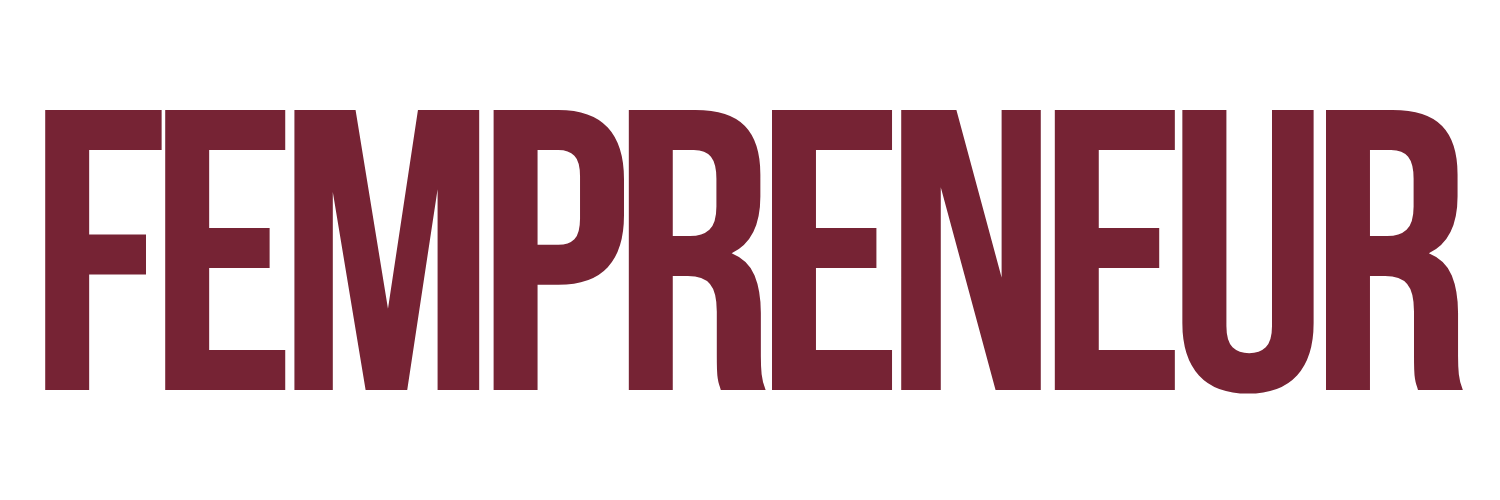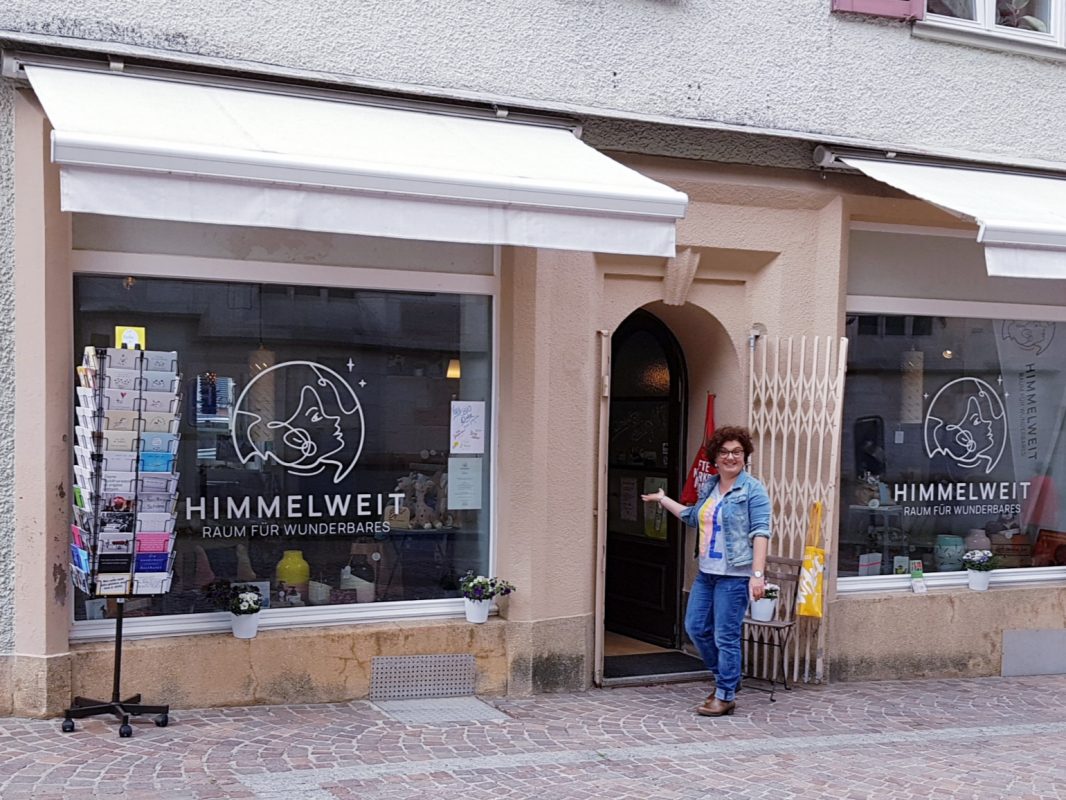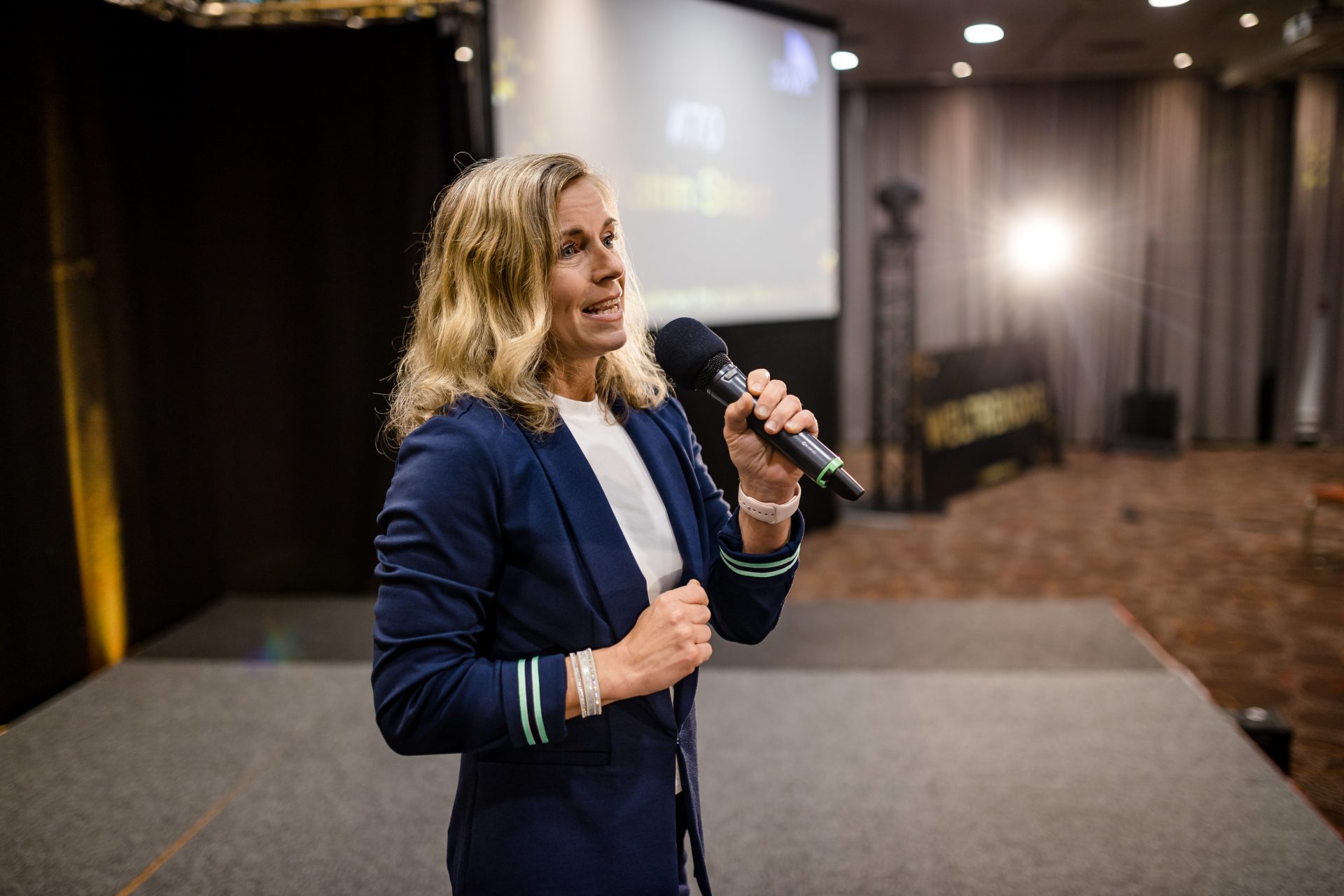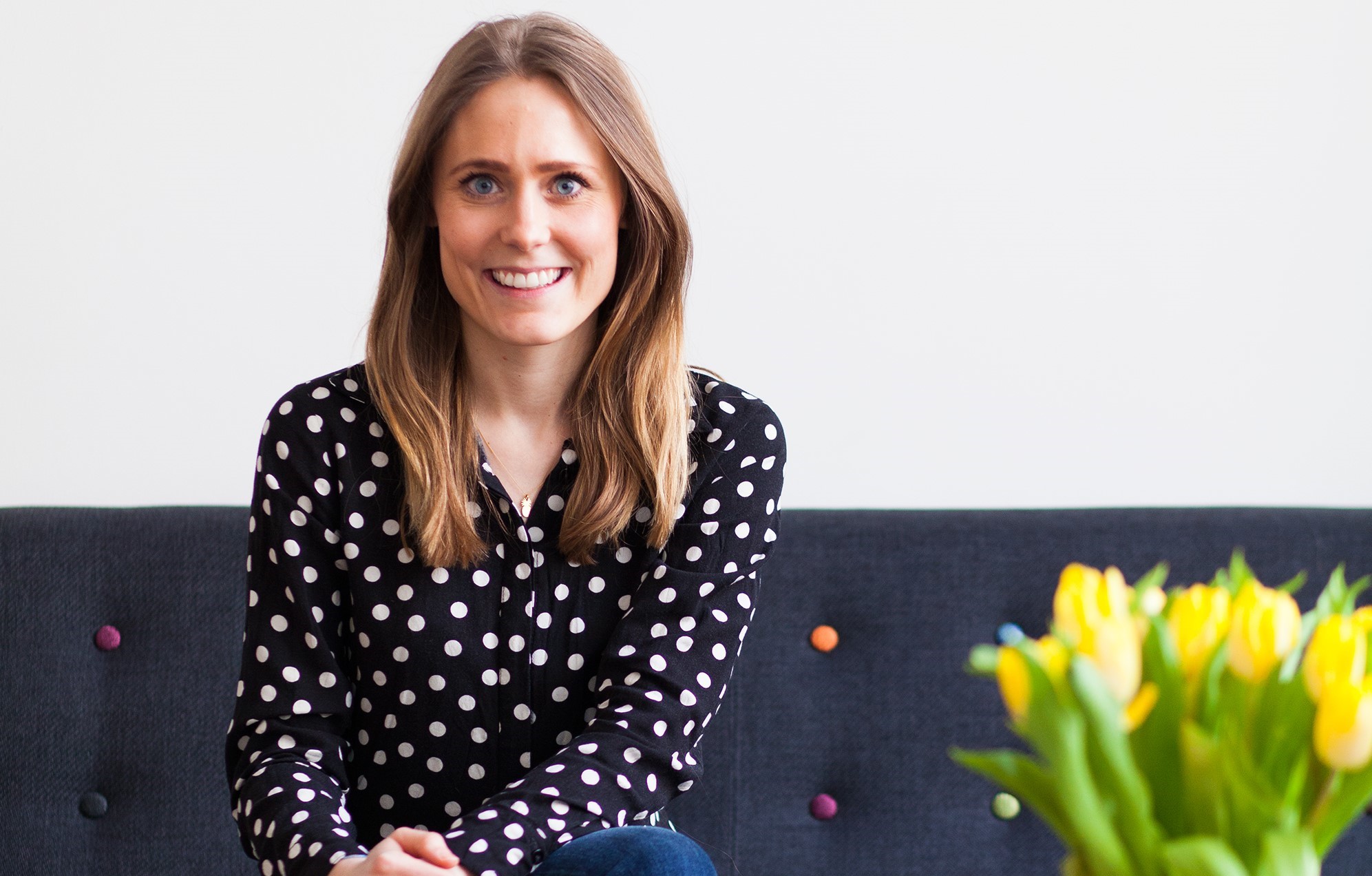This year I was interviewed for the magazine PIONEER that was created by the students of the Berlin School of Business and Innovation. I was very honored to be selected for their 2nd issue and first woman on the cover – but also to have the ability to share my own story (because as you know, I am usually giving female entrepreneurs in Germany a platform with this digitale magazine I created). In this interview I am talking about the inspiration for launching FEMPRENEUR in 2015, my main challenges, the 3 qualitities for a female role model that I defined for myself as I became a role model, why women entrepreneurs are so important, business ethics, how I juggle being an entrepreneur, publisher and speakerat the same time as well as the people, that inspired me.
What was the inspiration for the launch of your platform, FEMPRENEUR?
I already had the idea during my studies, that I wanted to become an entrepreneur even though that was not a trendy thing back in the days. The idea for FEMPRENEUR happened organically.
I didn’t know my business idea yet, so in order to keep waiting for it, I just got started creating a website myself. I started with zero contacts, cash, knowledge.
I started with zero contacts, cash, knowledge.
But I knew instead of complaining of what is happening in the world, I wanted to become active and be a driving force of change myself. So one day I came up, with the thought of ‚women‘, which I afterwards recall as a calling or inner voice. I didn’t understand it fully back then, but I trusted my intuition.
Over the years I learned a lot about the startup scene and the challenges of women. For example there are positive and authentic role models missing for women, their visibility is low in mainstream media and also the way they are portrayed is mostly very stereotypical.
I wanted to become active and be a driving force of change myself.
So I wanted to change that and we shouldn’t wait for other people to do that. But if we see a problem, it is our responsibility to try to solve it. So I took action, and created FEMPRENEUR and later published “The Female Founders Book”, a german book about female founders across the DACH-region, which sparked a lot of inspiration to other women.
What have been the main challenges you’ve faced in creating your own business?
For me entrepreneurship was just a vehicle for change, that gave me more space in a quite narrow system. My business is deeply purpose driven and a creative outlet for my ideas and opportunity to create change, that I believe is important.
My business is deeply purpose driven and a creative outlet for my ideas and opportunity to create change.
So my main challenges, were of course the typical entrepreneurial ones. Figuring out, how this can all work out, finding solutions to all the problems, that were coming up, and making sure the business is making money, so my time and energy is valued and so I can continue what I am doing.
But most of all that challenge is to keep going, being resilient, and being patient. What I envision is not a short term goal or success. I am aware it will take years to create that change. It won’t happen, that we have 50% female founders within 3 years. And that’s also not the ultimate goal.
I do think we need more conscious people, who do business not in a coat-throat-way, but with empathy, compassion and most of all sustainability. We need more social businesses or ideas. I am not an advocate for the faster, better, bigger way of doing business.
If your business is still around in 20 years, you made an impact on other peoples life’s and helped mother earth to recover from our human mistakes, that’s for me real success.
If your business is still around in 20 years, you made an impact on other peoples life’s and helped mother earth to recover from our human mistakes, that’s for me real success. Not the big exit and your bank account with seven-figure digits.
So staying consistent, not loosing hope, and not allowing shortage of money to skip my commitment and go back to the easy way, but to fight and not giving up. That’s the biggest challenge for me.
But I do have this inner drive, that is my engine and is never failing to push me further. It is important for entrepreneurs to have a real and honest intrinsic motivation, so you don’t give up, when the road gets tough.
It is important for entrepreneurs to have a real and honest intrinsic motivation, so you don’t give up, when the road gets tough.
What are for you three defining qualities for a female role model?
Authenticity, compassion and courage!
Authenticity sounds easy, but finding your true self, that is covered under years of socialization, input of media and what others expect of you, that is a quest that takes years to find back to your real You.
Loving and accepting that real you, is another challenge. And holding that space in an environment, that wants you to adapt and doesn’t like mavericks, is another challenge in itself.
Also compassion is more needed than ever in this world. But coming with new values to the business world, it is still a challenge.
And having courage to be that woman and standing in your feminine energy takes courage, especially if you work in a male dominated environment. But these qualities are most important for all successful leaders of tomorrow, either women or men.
In your opinion, why is important that the world business starts relying more on women entrepreneurs?
We will have a shift of energy in the business environment, if we have more and more women entering the entrepreneurship space.
Everything is connected, so in order to solve the challenges of climate change, financial system and so on, we need more sustainable business, that have an effect on our social system as well.
We need more sustainable businesses.
A “real” entrepreneur would probably laugh about it, because business per definition has it’s ultimate goal of revenue maximization. Social and environmental things, are just CSR, but not really imprinted in the company’s leader’s values.
But I think it’s necessary to question this old paradigm and change to a new one. I think women intrinsically do have the feeling of caring for the community and planet more.
I believe women’s ideas and businesses bring a lot of value to the economy, in different ways, and we should start valuing that.
That’s reason number one. But there are also different studies out there, that show women’s businesses bring higher revenues, fail less and are more innovative.
I believe women’s ideas and businesses bring a lot of value to the economy, in different ways, and we should start valuing that.
Do you think new technologies and innovation can play a role in widening women’s access to higher management roles?
Not necessarily. If the old systems are still in place, technologies can make it even more difficult. For example with AI. We nurture AI with information and data, but that data comes from our current status quo as society, our norms and standards.
And we see that it is discriminating not only for gender, but people of color as well. So if AI “takes over” in the application process of companies, it might discriminate women and other groups.
Not because AI is bad, but we fed it with this kind of information. And we also need to see that these innovation and technologies are mostly made by men. Also the tech industry is male dominated.
So many things made by men are made for men, and often not taken women’s needs in consideration. So if we really want to see change, for example in women being in higher management roles, it will be women, that need to take initiative and not wait for men to do it for them.
So if we really want to see change, it will be women, that need to take initiative and not wait for men to do it for them.
Because that will never happen. No one is really willing to let go of their privileges and power positions. But I do hope, that the next generation, both women and men, already have different values, and if they are in power, that things will naturally start to shift.
But the old generation still being in power positions, is holding us back and just looking out for themselves and their future.
In your experience, what is the importance of networking between entrepreneurs?
Well I started in the beginning of my entrepreneurship journey, to go to many startup events, meet other people and network. And I believe that was very important, to also be visible yourself and it created great opportunities as well.
Networking is very important, to also be visible yourself and it created great opportunities for me as well.
Over time, I value more a quality rather than a quantity network. Also you can get lost in networking, so be sure that you focus on your real important tasks ahead and try to network more focused.
But not forcing anything, because other people will notice. Personally I also like deep rather than small talk. So intuitively I changed my strategy to meet just with people, I really connect over with their values and stay away from superficial connections.
The success of networking comes with finding your own style.
But everyone is different, and the success of networking comes, with finding your own style.
In the years since you’ve become an entrepreneur what are the mains changes and improvements you’ve seen?
I am very happy to see that the awareness and coverage of women and female entrepreneurs is rising since the last 5 years. When I started out with FEMPRENEUR there was no real market in a typical business sense for it.
Looking back, I was a bit ahead of time, which is good. But if you are in that position of a pioneer it doesn’t feel glamorous like most people think.
But I felt the world needed that. Looking back, I was a bit ahead of time, which is good. But if you are in that position of a pioneer it doesn’t feel glamorous like most people think. You feel unsecure and doubt yourself even more.
I also see a change coming regarding the acceptance and support of social startups even more. I think we will shift from just the digits idea of success to a more sustainable and holistic approach.
But I always trusted that inner feeling, and if you do so, nothing can go wrong. And looking a bit in the future, I also see a change coming regarding the acceptance and support of social startups even more. I think we will shift from just the digits idea of success to a more sustainable and holistic approach.
As a public speaker, what is your approach to bringing attention to the aspects you care about the most?
I believe, if you want to bring attention to your speech, talk about your topic with passion. If you are deeply passionate about your topic, people will feel it and be interested as well.
How important are ethics in business for you?
Highly important. I feel we still lack a lot of ethics, morals and values in the business world in general. I do see things are changing already, but it’s still at the very beginning.
I took an ethics class in the US, while I was studying abroad, and I was wondering why we don’t have it here in Germany. But I am not sure, if ethics is something we can teach, but it should derive from deep within yourself.
And I believe we all have some sort of value system in place, but maybe we are fearful to defend it if things get uneasy. But I think that’s a responsibility and challenge for each of us, to understand what our values are, and not compromise for less.
I think that’s a responsibility and challenge for each of us, to understand what our values are, and not compromise for less.
Just an easy example, if you don’t want the soil to be contaminated, the bees to die, and Indian farmers kill themselves, don’t work for companies like Monsanto, or even Bayer, since they are one company. If you don’t want people get killed by weapons, don’t share your precious energy and time and work for an armor company.
If you are a lawyer, don’t work for a company that sues poor people, while giving yourself a raise. It sounds easy, but when you do business, there might be financial attractive opportunities slipping away, because you stick to your values and decide not to work with that company.
That can be scary in the first moment, and I know what I talk about. But in the long run, I believe you will have much more peace of mind and soul, and that money, that comes when you stick with your values, will stay.
Who have been the role models you looked up at the early stages of your career?
Probably people expect me to name female role models. But there were almost none visible female stories in my childhood. The only one that inspired me was the fictional role model “Pippi Langstrumpf” and therefore Astrid Lindgren, who taught young girls, they can be everything.
They are strong and can take care of themselves, and create their own world as they like it. I liked that idea of freedom. I am generally less inspired by a person itself, but what they resemble for me.
So I am inspired by Einstein’s curiosity to understand the world and its physics. I am inspired by DaVinci, with all his different interests and not being only focused on one area, but many and letting these different topics nurture and inspire each other.
I was inspired, by Steve Jobs innovation and pioneer spirit, but also his journey as an entrepreneur, showcasing, that your business might not only go well, but that you can also lose everything and it is up to you, if you give up or continue and just grow stronger from it.
There is also Nelson Mandela, who had to be patient for years in prison, but then to come out and create the change he wanted to see.
And last but not least, there is Richard Branson, who inspired me with his adventurous and unconventional spirit. I feel all these qualities exist within myself, but seeing these people being successful with these qualities, helped me some way to validate myself.
With regards to your education, do you feel you were given the necessary knowledge and skills to step in the world of business after your studies?
Definitely not. But you need to see, that our education system is old. We are teaching old knowledge. And its even more a shame to see, that they probably teach children the same stuff they taught us.
We don’t teach kids the real stuff, they need to know for their life or career. But this is also complaining on a high level, because I can take a step back and see how deeply privileged I am to go to school 13 years and study 6 years, without being in debt half of my life, like students in the US.
So I am grateful that I received all the education I got. But I also didn’t study entrepreneurship specifically, so it is obvious I lacked some information. But this can also be an advantage, to not have the knowledge from the beginning.
You don’t need a degree. Everyone potentially can do it. And that’s the beauty of entrepreneurship.
You see and approach things differently and therefore you might have a huge advantage as well. And you will learn what you need to know. It just takes a bit more of time.
And also education is most of the times very theoretical, but entrepreneurship is very practical. So you don’t need a degree. Everyone potentially can do it. And that’s the beauty of entrepreneurship.
What would be your advice for young people looking to launch their own business?
Just do it. Try it, fail, pivot (make changes so it works) and find your own authentic path in entrepreneurship. Whatever that means to you. And don’t listen to friends and family, that are talking you out of your idea.
You have already everything that it needs to bring this idea to life. If you can see it, you can do it.
It is your life, your idea, your vision. But don’t be mad with these people. Some people just can’t see, what you can see. So believe in yourself and just go for it! You have already everything that it needs to bring this idea to life. If you can see it, you can do it.
How do you juggle being an entrepreneur, publisher, author and speaker? And how do these different activities help you to improve on the others?
Well my bigger challenge is to balance being an entrepreneur and a creative. Because these things sometimes contradict each other harshly. As creative you need another setting, than an entrepreneur. Also still doing everything myself, it’s a struggle between operative and strategic, just from a mindset perspective.
If you are in the daily hustle, you lose connection to your creative side and the strategic view more easily. So I had to learn, to not overwork myself and seem busy, while being not productive.
Rather I am doing 3 things a day, that are aligned with my goal, rather then 15 things that are all chaotic and not helping to go in a certain direction. I try to simplify my business, rather than complicate it. Sounds easy, but that’s the real challenge.
We expect overnight success, but when in reality, consistency and persistence are more important than anything else.
But to answer your question, I am not everyday working as speaker or author. So its like different aspects of my work. And I really like having different tasks and challenges. It fuels my energy and creativity.
So I am really blessed that I could build myself all these fields of professions over the last 6 years. But these things again take time. We expect overnight success, but when in reality, consistency and persistence are more important than anything else.
What do you think business education can and should do to help achieve gender parity in the workplace?
Again I think we need women, that teach business, from an authentic and practical way. If we see role models, women doing what we want to become or do, than it will get easier to attract more women to these topics in the first place and also spark the passion about the specific topic.
But because I see there is a lot we need to change in education and I again follow my guiding quote “Be the change you wish to see in the world”, I am going to create an entrepreneurship online course this year to share my approach to business and all the practical learnings that everyone can apply to level up their business.
And I also plan to write a book as well. There is so much to share and say.
What are for you the essential characteristic of a successful entrepreneur?
Have the deep desire and passion for your business, so even when it gets tough, you will stick with it.
You need to burn, for what you do.
You will also convince more investors and attract the best customers. You need to burn, for what you do.
If you want to read in the digital version of the magazine PIONEER for free, then go here!














